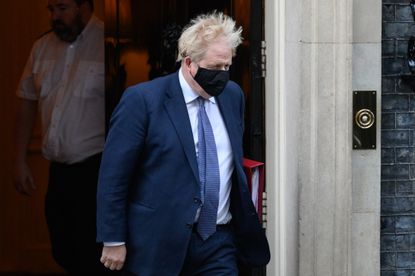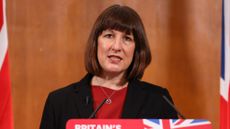Can Boris Johnson survive 2022 as prime minister?
It’s clear that the public has tired of the old, bumbling ‘Boris schtick’

Boris Johnson begins 2022 as an “irrevocably weakened figure”, said The Observer. Only two years since he won a decisive parliamentary majority of 80, his poll ratings are “significantly down”, and his authority among Tory MPs has been badly “eroded” by a series of scandals and two thumping Conservative by-election defeats.
The Prime Minister’s problems are piling up. He now faces a Cabinet Office inquiry over Downing Street parties in lockdown, and additional probes over political donations. The forthcoming inquiry into the handling of Covid, too, will surely rake over many “errors of judgement”.
The outlook for the year is bleak, agreed Alain Tolhurst on Politics Home. The public faces a steep rise in the cost of living this spring, with a hike in energy prices and a 1.25% increase in National Insurance payments. And it’s clear that Brexit is still very much not “done”: the row over the Northern Ireland Protocol drags on, and a host of new EU customs checks could flatten some British businesses. MPs will be watching the local elections on 5 May very closely. If they go badly, the Tories might be looking for a new leader by the summer.
Subscribe to The Week
Escape your echo chamber. Get the facts behind the news, plus analysis from multiple perspectives.

Sign up for The Week's Free Newsletters
From our morning news briefing to a weekly Good News Newsletter, get the best of The Week delivered directly to your inbox.
From our morning news briefing to a weekly Good News Newsletter, get the best of The Week delivered directly to your inbox.
This is a government “adrift and becalmed”, said The Guardian. Remember “levelling up”, for instance? This was meant to be Johnson’s “flagship” policy, designed to improve the prospects of voters in the North and the Midlands. Yet the white paper has been delayed again, until the end of January, and Michael Gove, the minister responsible, has reportedly been told by the Treasury that no new money is available. Instead, Gove will concentrate on devolving more political power to “neglected” regions. But without long-term investment, it will be impossible to fix entrenched inequalities; and “red wall” voters may find that hard to forgive.
The coalition of voters that propelled Johnson into Downing Street in 2019 is already “rapidly falling apart”, said Matthew Goodwin in The Spectator. “Over the past six months alone, the share of Leavers loyal to Johnson has crashed by almost 20 points.” Winning them back will be “his primary challenge in 2022”.
Don’t write Johnson off yet, said Andrew Neil in the Daily Mail. He’s “seriously wounded”, “but he’s not yet toast”. Britain faces a grim few months ahead, but there are “brighter prospects waiting for us in the second half of 2022”. Goldman Sachs, the IMF and the World Bank all predict that the UK economy will be the fastest-growing among the G7 developed nations in 2022.
Johnson has taken a major gamble in rejecting a draconian lockdown in the face of the Omicron variant. If he is vindicated in that decision, then he will reap the economic and political rewards. Still, the times will demand “a more focused, serious leader”; it’s clear that the public has tired of the old, bumbling “Boris schtick”. Is Johnson capable of such a metamorphosis? “That is entirely a matter for him.”
Sign up for Today's Best Articles in your inbox
A free daily email with the biggest news stories of the day – and the best features from TheWeek.com
Create an account with the same email registered to your subscription to unlock access.
-
 Sitting in judgment on Trump
Sitting in judgment on TrumpOpinion Who'd want to be on this jury?
By Susan Caskie Published
-
 Israel's war is America's, too
Israel's war is America's, tooOpinion 'Death to America' and 'Death to Israel' are just different slogans for the same hatred
By Mark Gimein Published
-
 Is David Cameron overshadowing Rishi Sunak?
Is David Cameron overshadowing Rishi Sunak?Talking Point Current PM faces 'thorny dilemma' as predecessor enjoys return to world stage
By The Week UK Published
-
 Less than total recall
Less than total recallEditor's Letter Why our brains want to forget the darkest days of the pandemic
By Theunis Bates Published
-
 Black and Hispanic voters: why they’re turning right
Black and Hispanic voters: why they’re turning rightTalking Point Polling indicates that the groups may no longer be Democratic Party strongholds
By The Week UK Published
-
 The Garrick: unfit for the modern world?
The Garrick: unfit for the modern world?Talking Point Founded in 1831, the club is composed solely of men
By The Week UK Published
-
 Rachel Reeves: does she have a plan?
Rachel Reeves: does she have a plan?Talking Point Pundits have critiqued her statements as alternately too conservative and too extreme
By The Week UK Published
-
 Putin's sham election
Putin's sham electionOpinion Protest votes show Russian dissent still simmers
By Susan Caskie Published


